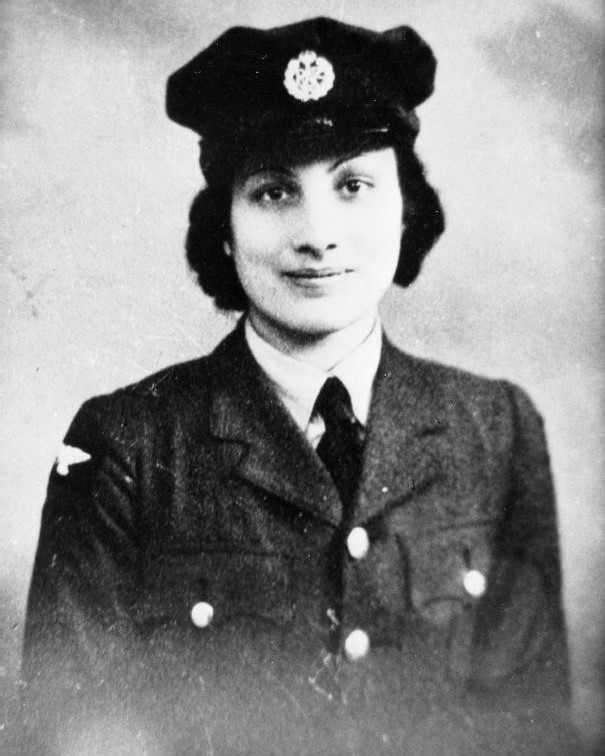Noor Inayat Khan - The Spy Who Wouldn’t Break
Born: January 1, 1914, Moscow, Russia
Died: September 13, 1944, Dachau Concentration Camp
Noor Inayat Khan was a World War II secret agent who became the first female wireless operator sent into Nazi-occupied France.
Nothing in Noor Inayat Khan’s early life seemed to point to her becoming a hero of World War II. She was born on January 1, 1914, and raised in a family known for music, spirituality, and noble traditions. Her father was a teacher of Sufism, a branch of Islam that values peace and compassion, while other relatives were respected musicians and writers. Noor herself grew up playing the harp and piano, writing poems and stories, and studying child psychology. After her father’s death, she also helped raise her younger siblings.
When World War II began and the Nazis invaded France, Noor and her family fled to England. She and her brother Vilayat felt strongly that they could not sit by while fascism and antisemitism spread across Europe. Even though they had been raised as pacifists, they agreed it was their duty to help the war effort, as long as they did not personally take a life. Vilayat joined the navy as a minesweeper, while Noor took on one of the most dangerous jobs available, she became a wireless operator and secret agent for the Special Operations Executive (SOE), a British spy organization.
During her training, Noor’s supervisors disagreed about her abilities. Some doubted her intelligence and said she was too emotional or too open with information. Others recognized her courage and strong sense of duty. Just before she was sent on her mission, she was offered the chance to step back. Instead, Noor insisted she was ready and asked only that, if she were captured, her family not be told right away. With that, she became the first female wireless operator sent into France.
Noor parachuted into Le Mans and made her way to Paris, where she connected with the French resistance network known as “Prosper.” But within days of her arrival, many leaders of the network were captured by the Nazis. That left Noor as the only remaining wireless operator in Paris, responsible for keeping communications with London alive for months. Her heavy typing style earned her the teasing nickname “Bang Away Lulu,” but her fluent French and radio skills made her a key figure. These same talents, however, also made her a major target for Nazi forces.
Despite the risks, Noor continued her work. She was told only to receive messages, not to send them, to reduce her chances of being tracked. Still, in October 1943, four months after arriving, she was betrayed, arrested, and taken into Nazi custody. Even under brutal questioning, Noor gave away nothing about her network. She even attempted escape twice, once nearly making it to freedom. Because she was considered so dangerous, the Nazis eventually sent her to Germany, where she was kept in solitary confinement.
After almost a year as a prisoner, Noor was transferred to Dachau concentration camp. There, on September 13, 1944, she was executed. She never betrayed the resistance and never revealed information to the Nazis. Her bravery under such pressure earned her deep respect after the war ended.
In 1949, Noor was posthumously awarded the George Cross, one of Britain’s highest honors for bravery. Decades later, her story continued to inspire. In 2011, a bronze bust of her was unveiled in Central London, and in 2014 her face appeared on a British stamp series called “Remarkable Lives.” In 2019, a blue plaque was placed at her wartime home in London by English Heritage, marking her as the first woman of South Asian descent to receive this honor.
Noor Inayat Khan’s life was short, but her courage and sacrifice left a lasting mark on history. She stood up to one of the darkest forces the world had ever seen, not with weapons, but with loyalty, bravery, and an unshakable commitment to freedom.
References:
“Noor Inayat Khan .” SWWEC, 9 Sept. 1970, war-experience.org/lives/noor-inayat-khan-soe.
“Noor Inayat Khan.” Encyclopædia Britannica, Encyclopædia Britannica, inc., britannica.com/biography/Noor-Inayat-Khan.
“Noor Inayat Khan.” Liberation Route Europe, liberationroute.com/stories/10/noor-inayat-khan.
Keywords:
Wartime, Justice, Courage, Perseverance, Freedom, Selflessness, Make a Difference, Take Risks for Others
Explore ARTEFFECT projects about this Unsung Hero:
Noor Inayat Khan Artworks

